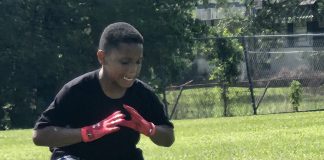Have you ever struggled with knowing how to help your child learn to read?
Like most parents, I have wondered how much is my responsibility and how much is up to my child’s teacher. Should we wait until the teacher says there is a problem? Or should we start working on these skills now? Regardless of how old your young reader is, there is something that you can do right now to improve his or her reading skills.
There is a specific skill that most parents have never heard of, yet is one of the best predictors of how well a child will learn to read. Before we get into that though, let’s take a step back and look at the big picture. Most of us are fairly familiar with the following fundamental skills of learning to read:
- Phonics (knowing what sound each letter makes)
- Fluency (being able to read accurately, quickly, and with expression)
- Vocabulary (knowing the meaning of the words being read)
- Comprehension (understanding what is happening in the story and being able to answer questions about what is being read)
The one skill that lays the foundation for these fundamentals, but most people are unfamiliar with, is phonemic awareness. In my experience, when parents understand the fundamentals of reading development along with phonemic awareness, they can support what is going on in their child’s classroom and further develop his or her reading skills.
So, what is phonemic awareness?
Children must be able to “hear” the sounds in words before they are able to read and spell. Teaching children the names and sounds of the letters (phonics) without teaching them what to do with those sounds when attempting to sound out or spell a word, is “putting the cart before the horse.” Even if a child has memorized all of the sounds that the letters make, he will not be able to read a word if he cannot blend those sounds together. When spelling, a child must first be able to break the word into separate sounds before writing down the letters to represent those sounds. This ability to manipulate sounds in words, both blending and breaking apart, is phonemic awareness. If a child is struggling with learning to read, it could be because he or she did not first master phonemic awareness.
Great news! Phonemic awareness can be developed through a number of activities. Remember that phonemic awareness is strictly an auditory skill. It does not involve any written letters.
Try these with your child: (Remember, you are asking for sounds, not the names of the letters.)
- What is the first sound in ‘sun?’ (“ssss”) What is the last sound in ‘sun?’ (“nnnn”)
- Tell me a word that starts with “mmm.” (ex. mop) Tell me a word that ends with “shhh.” (ex. fish)
- How many sounds do you hear in ‘chip?’ (3) How many in ‘clip?’ (4)
- If you change the first sound in ‘bat’ to ‘sssss,’ what new word will you get? (‘sat’)
If those are easy for your child, try some more challenging ones like:
- Tell me all of the sounds that you hear in the word ‘splash.’ (s- p –l –a -sh)
- If you change the “rrrrr” sound in ‘crash’ to “lllll,” what new word do you get?” (clash)
- If you change the first sound in ‘bat’ to the last sound, and the last sound to the first, what new word do you get? (tab)
Pig Latin is actually a phonemic awareness activity! Move the first letter of a word to the end and add a long “a” sound (pronounced ‘ay’). “That boy sat down” would become “At-thay oy-bay at-say own-day.” Try having a conversation in Pig Latin with your child!
Phonemic awareness falls under the umbrella of a larger group of skills called phonological awareness. Other phonological awareness skills are word awareness (breaking sentences into words), syllable awareness (breaking words into syllables), responsiveness to rhyme and alliteration during wordplay (Think Mother Goose and Dr. Seuss!) and onset and rime manipulation (“Do ‘big’ and ‘fig’ rhyme?” (yes) “Tell me a word that rhymes with ‘sip’.” (ex. ‘flip’) “Which two of these words rhyme: cat, dog, sat?” (cat and sat).
Low levels of phonological awareness are red flags for potential reading problems. The good news is that children can easily be screened for areas of weaknesses by a reading specialist, such as a speech-language pathologist.
It is never too early or too late to support your child with learning to read.
Just remember the fundamentals, especially phonemic awareness. If your child is struggling despite your best efforts to help, contact a reading specialist who can identify his or her specific strengths and use those strengths to overcome any areas of weakness.
About Rachel V. Guidry MA CCC-SLP





















